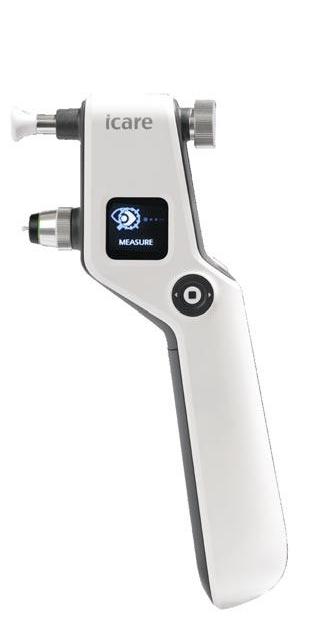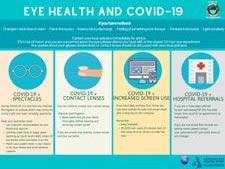
8 minute read
Equality and diversity
For many of us, the optical industry is a happy and safe environment to work in – but this is not always the case. A recent survey of ABDO ABDO takes action on discrimination and harassment cent felt that the issue was not dealt with correctly. Comments from survey respondents included: • “Not reported, it would not have been taken seriously” • “If you complain about anything they make your working life very difficult” • “I was racially abused by a ‘patient/ customer’ but my employer at the time issued a letter to me implying the racial abuse was my fault for not ignoring it” • “It was reported to police, an incident number given and a statement taken but it was never followed up” For those living with discrimination or harassment, we need to remember the members showed that a significant negative effect of being on the receiving number face discrimination and end of prejudiced behaviour throughout harassment at work. Read on to find out your working life. more about the results of this survey, Although those who have experienced how ABDO is taking action, and what discrimination or harassment might be you can do too. considered more likely to respond to this
Global awareness of racial sort of survey, it is still shocking to see discrimination reached a new peak in May that more than a third – 35 per cent – of 2020 after the death of 46-year-old black respondents reported prejudice on man George Floyd while in police custody in Minneapolis, Minnesota, USA. After discussion between ABDO board All members should feel safe and supported grounds of gender, with a corresponding 32 per cent reporting age prejudice and 24 per cent race prejudice. members and staff, it was decided that prejudice on grounds of age Given that this past year has included action was important – but beyond that, ‘sometimes’, ‘a lot of the time’ or an unprecedented degree of disruption, it was vital to discover the extent of ‘almost all of the time’ with many members being furloughed discrimination and harassment within the • 24 per cent of respondents reported for months, this report may also optical industry. prejudice on grounds of race underrepresent the degree of harassment ‘sometimes’, ‘a lot of the time’ or or discrimination experienced in a UNROOTING THE PROBLEM ‘almost all of the time’ typical year. After liaising with the Equality and Human Looking at individual comments, it The findings also suggest that there is a Rights Commission and investigating was also clear that the majority who had lack of awareness among some managers best practice, it was decided that the experienced discrimination or and business owners about what survey would seek to establish the harassment were not confident about constitutes discrimination and harassment, problems ABDO members face in the raising their concerns, either because of realms of harassment and discrimination lack of belief that the process would across all protected characteristics (see improve things, or because they would Box 1 for definitions). The survey found that harassment have had to raise concerns with the person causing the problem. Box 1: Facts and discrimination was present to an Only around 10 per cent of respondents unacceptable level within the industry. made a report, which seemed to be down to Harassment is any form of unwanted Key concerns included: a number of factors: 51 per cent of those and unwelcome behaviour which may • 21 per cent of respondents did not who had experienced discrimination or range from mildly unpleasant remarks know whether their company had harassment identified their employer or to physical violence. discrimination or harassment manager as the source, which obviously Discrimination is when you are policies, and 12 per cent reported affects the employee’s confidence in treated differently (e.g. less favourably) that their companies did not have reporting anything. because of your gender, race or disability. such policies Further comments indicated that Protected characteristics as listed • 47 per cent of women who respondents feared lack of action or, in the Equality Act: age, disability, responded reported prejudice on worse, that they would be penalised for gender identity, race, religion or belief, grounds of gender ‘sometimes’, ‘a lot complaining. Of those who did raise an sex, sexual orientation, marriage and of the time’ or ‘almost all of the time’ issue, only nine per cent felt that the civil partnership and pregnancy • 32 per cent of respondents reported correct action was taken, while 28 per and maternity.
Advertisement
Box 2: Call to action for employers, managers and employees
ABDO is calling for all employers to: • Introduce an equality and diversity policy, which includes a copy of the Equality
Act 2010, along with your company’s statement on equality and diversity • Educate employees about the policy, both when they join and on an ongoing basis in staff training • Provide the staff member responsible for this area with equality and diversity training • Act transparently and in line with the policy should harassment or discrimination arise, whether from a patient or a member of staff It is only when all four elements are in place that employees will develop the confidence to consistently report prejudiced behaviour. Employees should: • Make themselves familiar with the Equality Act 2010 and their employer’s practice protocols • Conduct themselves in line with the Equality Act and the GOC’s standards of practice and business standards towards all staff and patients in relation to protected characteristics • Promote equality in the workplace • Be aware of how to raise a concern internally
the detrimental impact this can have on staff, and how to handle it when a member of staff first flags a concern.
ABDO president, Jo Holmes, says: “Experiencing workplace discrimination or harassment can have a detrimental effect on a person’s wellbeing throughout their working life, which can have a knock-on effect at home. Promoting and practising equality, inclusion and respecting diversity is everyone’s duty in every scenario.
“This survey shows that some of our members are on the receiving end of prejudiced behaviour at work, which is unacceptable. Some people may be unaware of their prejudice or are unconsciously biased; we need to do our best to raise awareness and continue to support our members in taking the correct and appropriate action when necessary.”
ABDO wants to support and inform employers on their responsibilities, and employees about their rights (see Box 2). Furthermore, ABDO provides practical assistance to help employers improve their policies and follow up with appropriate action, and to employees who experience prejudiced behaviour through its legal helpline. ABDO is also working with NHS England to provide detailed advice about speaking up, raising concerns and, in certain circumstances, whistleblowing for optometric and optical practitioners, other staff, practices and businesses. This will be released in the coming weeks. We will continue to engage with the other NHS representatives throughout the UK to provide similar.
STEPS YOU CAN TAKE
If you are facing discrimination or harassment, please do take action. The first step is usually to raise this with your manager. If this isn’t possible, and your employer has one, you can also speak to the human resources (HR) representative.
Box 3: NHS obligations
Practices that have NHS contracts throughout the UK have agreed to provide care to NHS patients in their area. However, it is possible to refuse NHS services to a patient who is abusive and/or harasses staff. There should be a process in place for staff to escalate concerns regarding such patients to the practice owner/manager for them to manage those situations accordingly, note in the patient record card why the said patient will no longer be provided eyecare, inform the patient of this and provide information on how to find another practice for their eyecare. You may also be able to speak to a trade union representative. If this does not help, you can make a formal complaint using your employer’s grievance procedure. Employers may also have a whistleblowing/speaking up procedure. If this does not work and you are still being harassed, you can take legal action at an employment tribunal.
All NHS contractors have a duty to accept NHS patients. However it is still possible to refuse NHS services to a patient who is abusive and/or harasses staff (see Box 3).
If you need further support, ABDO’s Membership Department is the first port of call for advice and can signpost you to further help from ABDO’s Legal Advice Line, or support from ABDO’s HR Service as appropriate. You can also call the Advisory, Conciliation and Arbitration Service (ACAS) helpline for advice.
If you are an employer and are concerned that you don’t have a policy, or perhaps it isn’t up-to-date, do read ABDO’s full guidance which contains links to template policies you can adapt. You can also discuss your policies with ABDO’s HR service: find out more here.
As part of its work to support members, ABDO wants every member to feel supported in reporting or receiving reports of harassment and discrimination. Building on its 2020 Discrimination and Harassment Survey, ABDO will continue throughout 2021 to highlight problems, and raise awareness of resources for employer and employee members about their responsibilities and rights.
RESOURCES TO SUPPORT ACTION
• Call ABDO Membership on 01227 733 911/733912 or email membership@ abdo.org.uk. The membership team can also direct you to the ABDO Legal
Helpline. • Call ABDO’s HR Service on 020 7298 5105 or email HRServices@abdo.org.uk • Call ACAS on 0300 123 1100 • Find out how to check if it is
discrimination with information from
Citizen’s Advice and get advice from
Gov.uk on workplace bullying and harassment and employment tribunals.
Note: ABDO’s 2020 Discrimination and Harassment Survey was sent to all ABDO members who receive eNews on two occasions in August 2020. The results are based on 388 responses. The survey questions and analysis of respondents’ characteristics, along with the full report and guidance for members, can be found in the Regulation and Policy section of the ABDO website.









